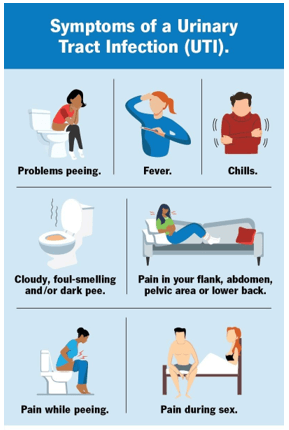A nurse is caring for an older adult client who reports dry, itchy skin. Which of the following actions should the nurse take?
Encourage the client to bathe frequently.
Apply powder to the client's skin.
Add moisturizing oil to the client's bath water.
Place a humidifier in the client's room.
The Correct Answer is D
Dry, itchy skin is a common concern in older adults, especially during the winter months or in dry environments. Increasing the humidity in the client's environment can help alleviate dryness and itching. Placing a humidifier in the client's room will add moisture to the air and help prevent excessive drying of the skin. It is important to ensure that the humidifier is clean and well-maintained to avoid the growth of bacteria or mould.
Encouraging the client to bathe frequently may further dry out the skin, so it is not recommended. Similarly, applying powder to the skin may exacerbate dryness and should be avoided. Adding moisturizing oil to the bath water may provide temporary relief, but a humidifier will have a more consistent and long-lasting effect on the client's environment.
Nursing Test Bank
Naxlex Comprehensive Predictor Exams
Related Questions
Correct Answer is A
Explanation
"I should discuss this document with my family after I sign it"
Advance directives are legal documents that allow an individual to specify the type of medical care they want to receive in case they become unable to make their own decisions. It is important for the client to discuss their wishes with their family members or loved ones so that they are aware of the client's desires and can act accordingly in case of an emergency.
"I am not allowed to change my mind once I sign this document" is incorrect. The client can change their mind about their advance directive at any time and for any reason. It is important for the client to review their advance directive periodically and make changes as necessary.
"An attorney will need to notarize this document for it to be valid" is also incorrect. While some states require advance directives to be notarized or witnessed, not all states do. It is important for the client to check with their state's laws regarding advance directives to ensure that their document is legally binding.
"My partner needs to be present when I sign this document" is not necessarily true. While it is recommended for the client to have a witness present when signing their advance directive, it does not have to be their partner. The witness should be someone who is not a family member, healthcare provider, or beneficiary of the client's estate.

Correct Answer is ["A","D","E","F"]
Explanation
To decrease the risks for a urinary tract infection for this client, the nurse should take several actions. The nurse should encourage the client to drink 3,000 mL of fluid daily to help flush bacteria out of the urinary tract¹. The nurse should also empty the drainage bag when it is half-full to prevent bacterial growth¹.
Additionally, the nurse should review the need for the indwelling urinary catheter daily and use soap and water to provide perineal care¹.

Whether you are a student looking to ace your exams or a practicing nurse seeking to enhance your expertise , our nursing education contents will empower you with the confidence and competence to make a difference in the lives of patients and become a respected leader in the healthcare field.
Visit Naxlex, invest in your future and unlock endless possibilities with our unparalleled nursing education contents today
Report Wrong Answer on the Current Question
Do you disagree with the answer? If yes, what is your expected answer? Explain.
Kindly be descriptive with the issue you are facing.
